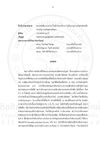 February 2024 in “Biomedical journal of scientific & technical research”
February 2024 in “Biomedical journal of scientific & technical research” Inositol and phytic acid together increase hair growth and density.
 November 2023 in “Advanced Science”
November 2023 in “Advanced Science” A specific hair protein variant increases the spread of breast cancer and is linked to worse survival rates.
 August 2023 in “International Journal of Molecular Sciences”
August 2023 in “International Journal of Molecular Sciences” The human scalp hair bulb contains different types of melanocytes with varying abilities to produce melanin.
 December 2022 in “Cumhuriyet medical journal”
December 2022 in “Cumhuriyet medical journal” Different PCOS subgroups have similar metabolic features, but those without menstrual problems have milder issues.
June 2020 in “Authorea (Authorea)” First-time mothers had higher stress hormone levels in late pregnancy than mothers who had given birth before.
 February 2024 in “International Journal of Molecular Sciences”
February 2024 in “International Journal of Molecular Sciences” Hair loss in Androgenetic Alopecia is caused by genetics, aging, and lifestyle, leading to hair follicle shrinkage and related health risks.
January 2024 in “Diagnostics” Long COVID causes a wide range of long-lasting symptoms that change over time and are hard to diagnose and treat.
 January 2024 in “Endocrine and metabolic science”
January 2024 in “Endocrine and metabolic science” Different types of PCOS need specific diagnosis methods and treatments.
 September 2023 in “F&S reports”
September 2023 in “F&S reports” PCOS may increase the risk of mental health issues like depression and anxiety.
 October 2022 in “Frontiers in Endocrinology”
October 2022 in “Frontiers in Endocrinology” New tools show that in fish, NPY increases feeding and somatostatin decreases it.
March 2023 in “Epilepsia” Trilostane may help delay epilepsy development by increasing certain brain chemicals.
August 2021 in “Asian Journal of Pharmaceutical and Clinical Research” Plant extracts in shampoo improved hair thickness and density in men with hair loss.
 February 2024 in “Trends in Sciences”
February 2024 in “Trends in Sciences” Store Tectona grandis leaf extracts in slightly acidic, light-protected conditions for best stability.

Proretinal nanoparticles are a safe and effective way to deliver retinal to the skin.

Safflower extract in nanostructured carriers was more effective than minoxidil for hair growth without irritating skin.
March 2020 in “The Thai Journal of Veterinary Medicine” A Thai Bangkaew dog with diabetes and pancreatic issues improved with insulin, enzymes, and vitamins.
 7 citations,
September 2014 in “Journal of Obstetrics and Gynaecology Research”
7 citations,
September 2014 in “Journal of Obstetrics and Gynaecology Research” Ultrasound measurement of the ovarian stroma to total area ratio is not a reliable single predictor of high male hormone levels in Thai women with PCOS, but works better when combined with clinical signs.
 14 citations,
February 2016 in “Journal of Obstetrics and Gynaecology Research”
14 citations,
February 2016 in “Journal of Obstetrics and Gynaecology Research” Blood tests are needed to confirm high male hormone levels in women with PCOS, as physical signs alone are not reliable.

Avicennia marina extract and avicequinone C can potentially promote hair growth and treat hair loss by interfering with hair loss mechanisms and boosting growth factors.
 59 citations,
May 2014 in “Expert Opinion on Therapeutic Targets”
59 citations,
May 2014 in “Expert Opinion on Therapeutic Targets” The document concludes that targeting 5α-reductase, the androgen receptor, and hair growth genes, along with using compounds with anti-androgenic properties, could lead to more effective hair loss treatments.
 January 2024 in “http://isrctn.com/”
January 2024 in “http://isrctn.com/” Teak leaf extract hair tonic was tested for hair growth and safety.
 17 citations,
December 2015 in “BMC Complementary and Alternative Medicine”
17 citations,
December 2015 in “BMC Complementary and Alternative Medicine” A new plant extract from Avicennia marina could potentially be used to treat common hair loss.
 49 citations,
October 2017 in “Nutrients”
49 citations,
October 2017 in “Nutrients” Equisetum debile extract, especially the ethyl acetate type, may be a promising natural ingredient for anti-hair loss products.
 25 citations,
July 2019 in “Journal of drug delivery science and technology”
25 citations,
July 2019 in “Journal of drug delivery science and technology” Researchers created better skin-application menthol capsules that are stable, safe, and penetrate the skin quickly.
 22 citations,
August 2011 in “Journal of Supercritical Fluids”
22 citations,
August 2011 in “Journal of Supercritical Fluids” Rice bran extract might help prevent hair loss.
 13 citations,
January 2017 in “Chemical & Pharmaceutical Bulletin”
13 citations,
January 2017 in “Chemical & Pharmaceutical Bulletin” Certain compounds, especially those with a propionic substituent, could potentially be new treatments for hair loss and similar disorders.
 6 citations,
February 2020 in “Journal of Natural Products”
6 citations,
February 2020 in “Journal of Natural Products” A new compound from a sponge strongly inhibits an enzyme linked to male-pattern hair loss without being toxic at low levels.
 11 citations,
December 2018 in “Assay and Drug Development Technologies”
11 citations,
December 2018 in “Assay and Drug Development Technologies” Natural herbal compounds might treat certain medical conditions by reducing DHT levels, but more research is needed to confirm their effectiveness and safety.
June 2022 in “Journal of Cosmetic Dermatology” Acanthus ebracteatus extract may help prevent hair loss.
6 citations,
November 2020 in “Journal of cosmetic dermatology” Para rubber seed oil is a safe and effective treatment for hair loss.























